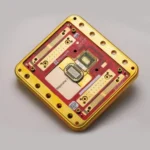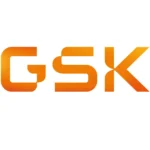Microsoft’s introduction of its Majorana 1 quantum processor is creating fresh opportunities for Taiwan’s leading electronics manufacturers, with Hon Hai Precision Industry Co. and Quanta Computer Inc. positioning themselves to capture orders in the emerging quantum computing market.
The development signals potential new revenue streams for Taiwan’s tech manufacturing giants, who already produce artificial intelligence servers for Microsoft. Hon Hai, also known as Foxconn, has been developing its own 10-qubit quantum computer targeted for 2025, while Quanta has dedicated engineering teams working on quantum computing projects since 2019.
The Taiwanese companies’ existing partnerships with Microsoft in AI server manufacturing could give them an advantage as the quantum computing market develops. Hon Hai’s Foxconn Research Institute has already made progress in the field, publishing findings in the quantum computing journal PRX-Quantum after collaborating with the University of Cambridge.
Microsoft claims its new chip, built using topological superconductor technology, represents a significant advance toward practical quantum computing. The processor contains eight topological qubits and is roughly one-hundredth of a millimeter in size, according to the company’s research published in Nature.
While CEO Satya Nadella’s assertion that practical quantum computers could arrive within years rather than decades remains to be proven, Taiwan’s manufacturers are preparing for increased demand. Quanta Chairman Barry Lam has identified quantum computing as a key growth driver for the company’s cloud and Internet of Things business.
The development comes as Taiwan’s tech manufacturers seek to diversify beyond traditional electronics assembly. Hon Hai has established an ion trap quantum computing laboratory focusing on next-generation AI and automotive applications, highlighting the industry’s push into advanced computing technologies.







